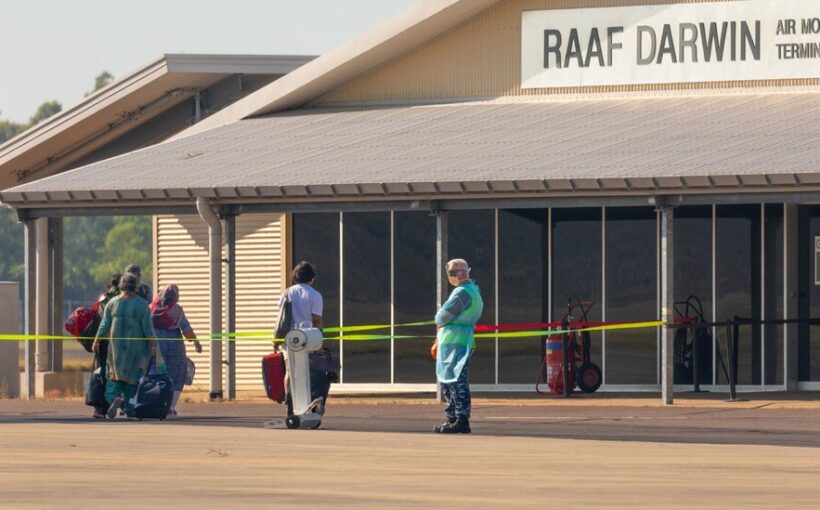Days after ending its divisive ban on allowing citizens to return from India, Australia carried out its first repatriation flight from that country, with the plane departing from New Delhi and arriving in Darwin, in Australia’s Northern Territory, on Saturday.
The flight had been scheduled to carry 150 passengers, but just 80 people were on it, after 70 people were barred from travel because they or their close contacts had tested positive for Covid-19, according to the Australian government. The new arrivals in Australia now face two weeks of quarantine in a converted mining camp outside Darwin.
Because of Australia’s rigorous preflight testing, in which passengers must show two negative tests for Covid-19, the seats could not be given to other passengers. At least 9,500 Australians in India have registered as wanting to return home. Around 1,000 of those people are classified as “vulnerable” for health or financial reasons.
When the numbers of new cases of the coronavirus began a perilous ascent in India last month, Australia followed in the footsteps of New Zealand and imposed a temporary ban on travel from India. Those who defied the ban faced the threat of jail time or large fines. The policy was heavily criticized and labeled a breach of human rights by lawmakers, advocacy groups and those in the Indian diaspora.
Australia has taken a stringent approach to managing the pandemic, including closing its borders and imposing travel restrictions that are expected to be in place until well into 2022, according to the most recent government guidance. Many Australian citizens are still stranded abroad, unable to secure spots in isolation facilities or afford flights home that may run into the tens of thousands of dollars for a one-way ticket. The measures have all but eliminated community transmission of the virus.
India, by contrast, is experiencing one of the world’s most dangerous outbreaks, with hospitals unable to accommodate the thousands of people who require urgent medical attention. Crematories in the country, which has so far reported 24 million cases and more than 250,000 deaths, are overloaded, while dozens of bodies have washed up on the banks of the Ganges River.
In a televised briefing over the weekend, Australia’s treasurer, Josh Frydenberg, said that the government’s priority was to protect Australians within their own country. “We’re following the medical advice,” he said, adding, “We’ve got to maintain our health settings because we know how damaging to the lives and livelihoods of Australians an outbreak here would be.”
Further repatriation flights are scheduled for later this month, with about 1,000 people planning to return by the end of June.
Source: Read Full Article
